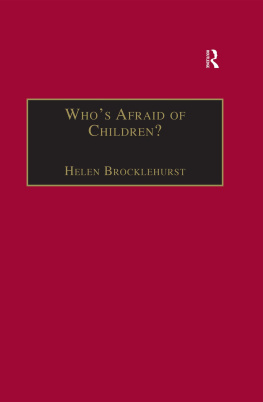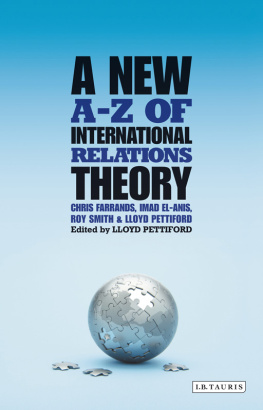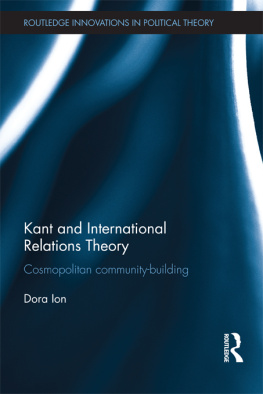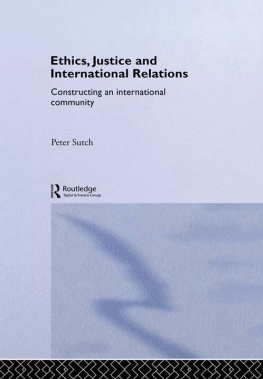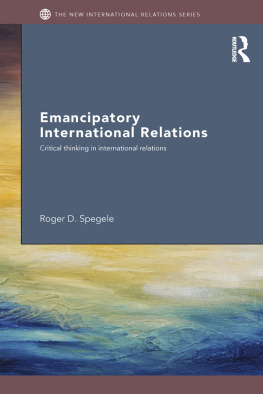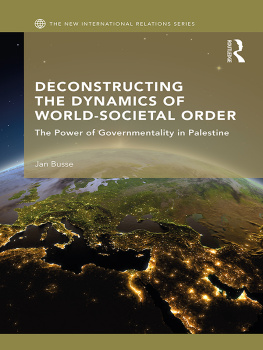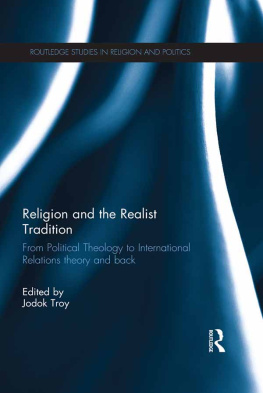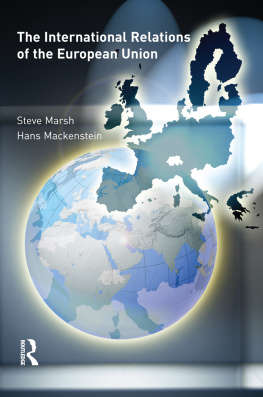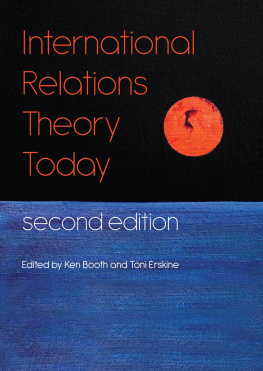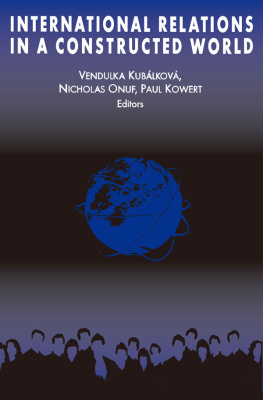First published 2006 by Ashgate Publishing
Published 2016 by Routledge
2 Park Square, Milton Park, Abingdon, Oxon OX14 4RN
711 Third Avenue, New York, NY 10017, USA
Routledge is an imprint of the Taylor & Francis Group, an informa business
Copyright 2006 Helen Brocklehurst
Helen Brocklehurst has asserted her right under the Copyright, Designs and Patents Act, 1988, to be identified as the author of this work.
All rights reserved. No part of this book may be reprinted or reproduced or utilised in any form or by any electronic, mechanical, or other means, now known or hereafter invented, including photocopying and recording, or in any information storage or retrieval system, without permission in writing from the publishers.
Notice:
Product or corporate names may be trademarks or registered trademarks, and are used only for identification and explanation without intent to infringe.
British Cataloguing in Publication Data
Brocklehurst, Helen, 1974
Whos afraid of children?: children, conflict and
international relations.- (Ethics and global politics)
1.Children and violence 2.Children and war 3.Children and politics 4.1nternational relations - Moral and ethical aspects
I.Title
303.6 083
Library of Congress Cataloging-in-Publication Data
Brocklehurst, Helen, 1974
Whos atraid of children?: children, conflict, and intemational relations / by
Helen Brocklehurst.
p.cm
Includes index.
1. Children and politics. 2. Children and war. 3. Children--Government policy. 4. World politics. 5. International relations. I. Title. II. Series
HQ784.P5B76 2006
327.1 082--dc22
2006017127
Transferred to Digital Printing in 2014
ISBN: 978-0-7546-4171-1 (hbk)
ISBN: 978-1-3152-3410-6 (ebk)
This book began a long time ago, in a dark age when talking of children in an era of post cold war international relations was at best misunderstood and at worst ridiculed. I would like to thank the following people for their support beginning with my parents Jean and Malcolm to whom I owe everything. Thank you too to my sisters Anne and Lisa and to Gran and to Grandpa. This one is for you.
In Aberystwyth I would like thank the staff at the Department of International Politics and in particular Ken Booth and Marysia Zaleweski for their insight and patience in equal measure. I would like to thank Cynthia Enloe for her endorsement of this project which is but a footnote to her inspirational observations. To Stuart Shields and Sue Board, for office space and head space thank you. To a great group of friends Helene Rhodes, Annaig le Mer, Diana Auwerter, Anthony Cannon Rosa, Mihir Patel, Nadeem Din, Anna Angelopoulou, and Michele Kingston thank you for making post-grad insecurity totally bearable, and to the canteen ladies in Penbryn for always smiling in exchanges involving coffee.
In Northern Ireland thanks to Marie Smyth, Dominic Bryan and Martin Melaugh for your humour, encouragement and sound advice. I would also like to thank colleagues in the Department of Politics and International Relations at Swansea University for making the department an enjoyable place to work and for their unfailing support, particularly during the last two years following the death of my colleague on another project. To Michael Sheehan, Roland Axtmann, Mark Evans, Alan Finlayson, Robert Bideleux, Jonathan Bradbury, Sam Chambers, Mark Smith, John Baylis, Alan Collins, and Madeleine Rogerson, thank you. To Gunnar Bozenhard a big thank you for technical and esteem wizardry.
To Tom Lansford, Patrick Hayden, Kirstin Howgate and Margaret Younger at Ashgate, thank you for your professionalism and good will throughout. Finally, to Nicola Nieuwoudt, desk editor, my sincere appreciation for your dedication and expertise.
For children, whoever they may be
Children
Beginnings
If children are people under 18 years old, it may be said that they form half of the worlds population. Age however, in many respects, is not sufficient in itself as an indicator of childhood, nor does it illustrate why such persons are potentially receiving or deserving of different treatment throughout this time. In fact there is no single or agreed definition of childhood recognized or acted upon worldwide. As a unique and transient period of intense physical, mental, emotional and spiritual development; a time span delineated differently across and within communities and cultures; a managed societal or economic initiation; and a portal to romanticized and marketable evocations, images and memories, the consideration of childhood presents a unique empirical and theoretical challenge. Children are shaped not only by their underdevelopment as persons, but by conceptions earned and bestowed by the many individuals and groups who hold expectations of children, individually, collectively, simultaneously, arbitrarily and even contradictorily.
For the purposes of this book, however, all those considered to be children and childlike, are of interest. The construction or the image of a child, invoked in the minds of those fighting for their women and children for example, is important to this discussion. It is also true that people can remain forever children in the eyes of their parents, regardless of age, as evidenced in the Latin American protest movement Madres de Plaza de Mayo whose grown-up children disappeared during Argentine military rule. The choice of bestowed identity is of interest here despite the ambiguity.
The formal study of childhood, itself a young discipline, is another vital entry point. Childhood is often a clearly subdivided life phase though across different cultures and contexts these divisions may have no exact correspondence especially in later childhood. For the purposes of this book, all ages and stages of childhood are relevant. In the English language alone we may speak of early childhood, middle childhood and adolescence and baby, infant, child, teenager and youth to describe a spectrum of immature individuals with associated qualities and roles. As one identifies older persons, the terms child, juvenile, minor, youth and even person can be found interchangeably in international and customary law. The precise term used may also subtly bestow a social and political context. Youth describes a relatively older child though its use often suggests pejorative adult capabilities, notably in terms of the threat of physical strength and potential criminality. The category of youth is thus included in this analysis of childhood by extension and because these social and political associations also inform the concept of child. Childhood is clearly a concept which can be made and unmade. Through Military Orders imposed by Israel for example, Palestinians have been exclusively reclassified as adults from the age of sixteen. In Northern Ireland children throwing stones at the armed forces were described in the press as violent youths or innocent boys almost arbitrarily. Explicit or sensationalized portrayals of children in these political settings often unwittingly describe them as having lost their childhood. The idea that childhood and politics are mutually exclusive is one of the central building blocks of the book. No attempt to create a universal or comprehensive conception of the child will be made.
Concepts
In major works that attempt to conceptualize childhood, authors engaging in historical enquiries often admit to frustration with partial evidence and inconclusive arguments. Philip Aries work, Centuries of Childhood

